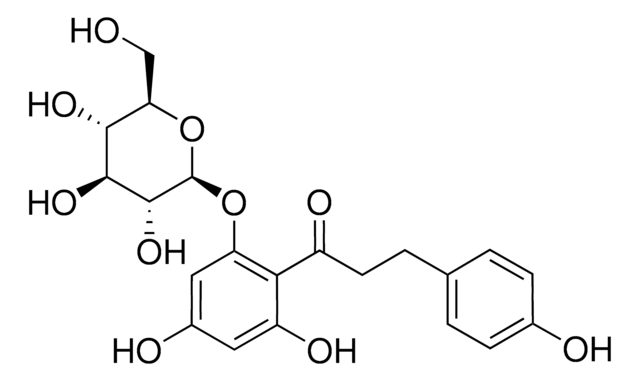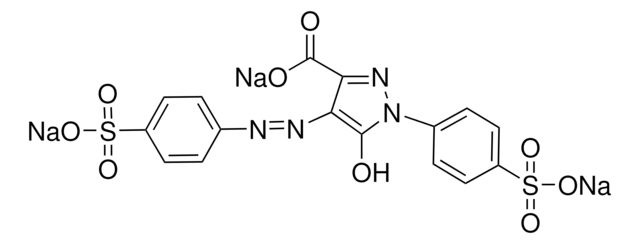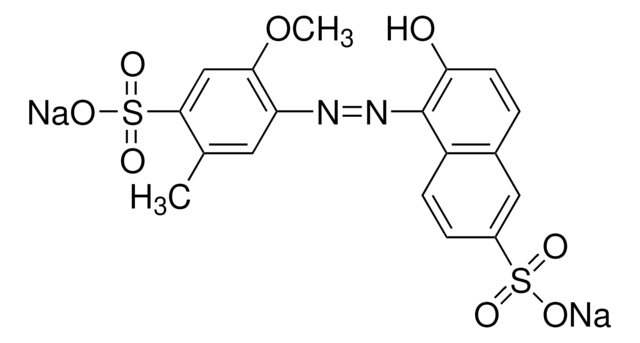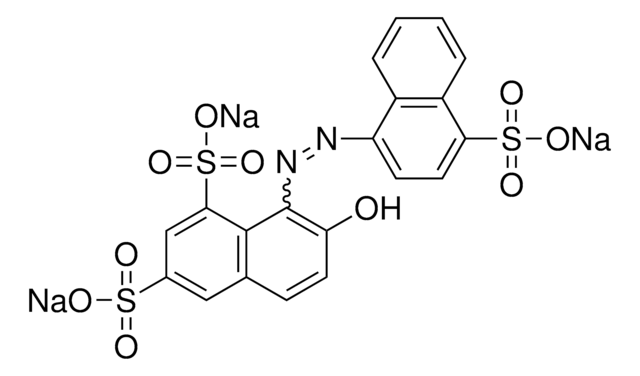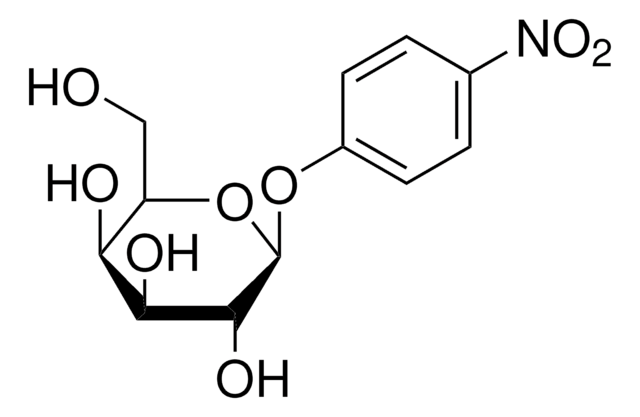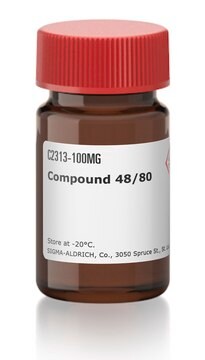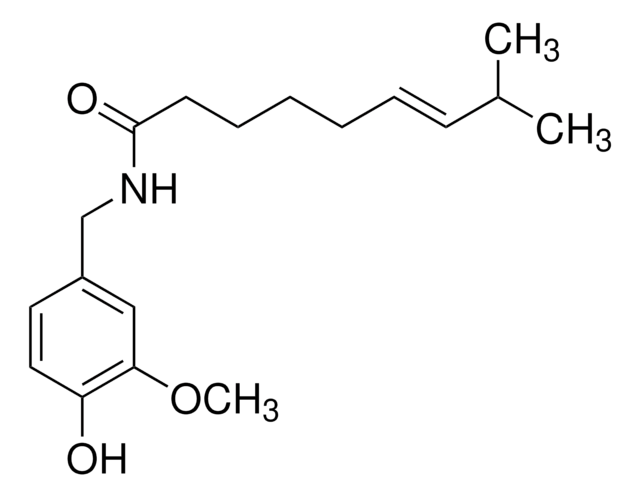Wszystkie zdjęcia(3)
Kluczowe dokumenty
M6546
(±)-2-(p-Methoxyphenoxy)propionic acid
solid, ≥98%
Synonim(y):
PMP
Zaloguj sięWyświetlanie cen organizacyjnych i kontraktowych
About This Item
Wzór empiryczny (zapis Hilla):
C10H12O4
Numer CAS:
Masa cząsteczkowa:
196.20
Numer MDL:
Kod UNSPSC:
12352202
Identyfikator substancji w PubChem:
NACRES:
NA.77
Polecane produkty
Nazwa produktu
(±)-2-(p-Methoxyphenoxy)propionic acid, ≥98%
pochodzenie biologiczne
synthetic (organic)
Próba
≥98%
Formularz
solid
ciąg SMILES
COc1ccc(OC(C)C(O)=O)cc1
InChI
1S/C10H12O4/c1-7(10(11)12)14-9-5-3-8(13-2)4-6-9/h3-7H,1-2H3,(H,11,12)
Klucz InChI
MIEKOFWWHVOKQX-UHFFFAOYSA-N
Zastosowanie
(±)-2-(p-Methoxyphenoxy)propionic acid may be used as a sweet taste receptor antagonist to study its effect on allulose-induced glucagon-like peptide 1 (GLP-1) secretion rats. It may also be used to study the response of the secretin tumor cell line (STC-1) to sweetener in the presence and absence of (±)-2-(p-methoxyphenoxy)propionic acid or lactisole.
Działania biochem./fizjol.
As a taste modulator, the sodium salt inhibits the perception of sweetness in humans, but not in rats.
Ta strona może zawierać tekst przetłumaczony maszynowo.
Hasło ostrzegawcze
Warning
Zwroty wskazujące rodzaj zagrożenia
Zwroty wskazujące środki ostrożności
Klasyfikacja zagrożeń
Eye Irrit. 2 - Skin Irrit. 2 - STOT SE 3
Organy docelowe
Respiratory system
Kod klasy składowania
11 - Combustible Solids
Klasa zagrożenia wodnego (WGK)
WGK 3
Temperatura zapłonu (°F)
Not applicable
Temperatura zapłonu (°C)
Not applicable
Środki ochrony indywidualnej
dust mask type N95 (US), Eyeshields, Gloves
Wybierz jedną z najnowszych wersji:
Masz już ten produkt?
Dokumenty związane z niedawno zakupionymi produktami zostały zamieszczone w Bibliotece dokumentów.
David E Lanfear et al.
JACC. Heart failure, 5(11), 823-832 (2017-11-04)
This study sought to derive and validate plasma metabolite associations with survival in heart failure (HF) patients. Profiling of plasma metabolites to predict the course of HF appears promising, but validation and incremental value of these profiles are less established. Patients
Miguel Concha et al.
Journal of biomedical materials research. Part B, Applied biomaterials, 106(6), 2464-2471 (2018-02-10)
In this study, highly neutralized, highly porous, and ultralight polymeric aerogels prepared from aqueous colloidal suspensions of chitosan (CS) and chondroitin sulfate (ChS) nanocomplexes, formulated as quasi-equimolar amounts of both, are described. These aerogels were designed as healing agents under
Kelly S Barth et al.
The Journal of continuing education in the health professions, 37(2), 98-105 (2017-06-01)
South Carolina (SC) ranks 10th in opioid prescriptions per capita-33% higher than the national average. SC is also home to a large military and veteran population, and prescription opioid use for chronic pain is alarmingly common among veterans, especially those
A Sclafani et al.
Physiology & behavior, 61(1), 25-29 (1997-01-01)
Cypha, propionic acid, 2-(4-methoxyphenol) salt, is a commercially available sweet taste inhibitor used in food products. The present study examined whether or not Cypha blocked the sweet taste response of rats. This was accomplished by measuring the consummatory response of
Yoko Murphy et al.
Pain physician, 18(4), E605-E614 (2015-07-29)
Canada has featured the second-highest levels of prescription opioid (PO) use globally behind the United States, and reported extensive PO-related harms (e.g., non-medical PO use [NMPOU], PO-related morbidity and mortality). A recent comprehensive review synthesized key data on PO use
Nasz zespół naukowców ma doświadczenie we wszystkich obszarach badań, w tym w naukach przyrodniczych, materiałoznawstwie, syntezie chemicznej, chromatografii, analityce i wielu innych dziedzinach.
Skontaktuj się z zespołem ds. pomocy technicznej